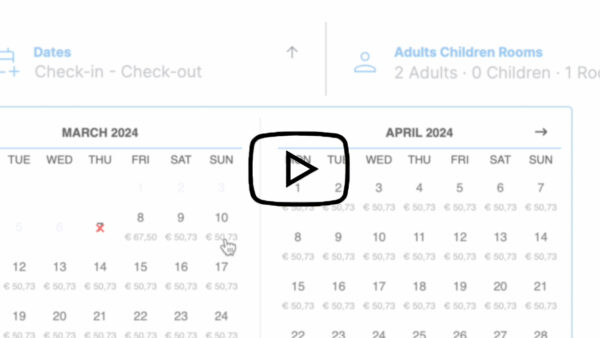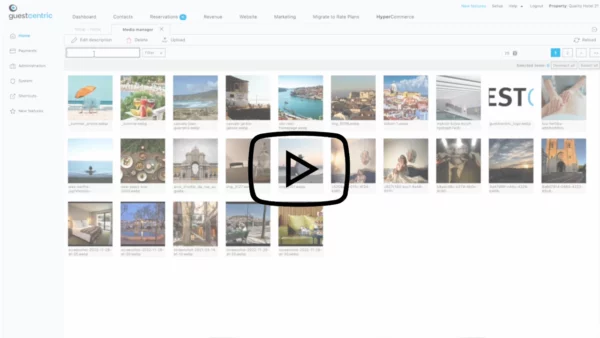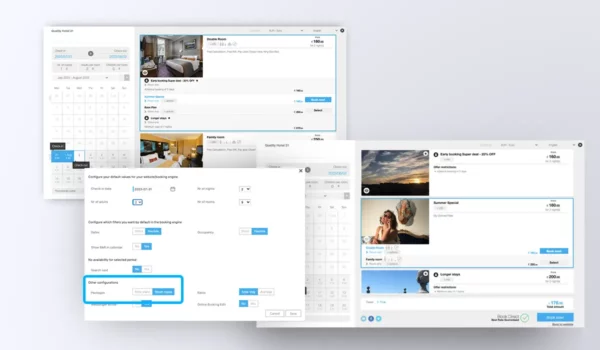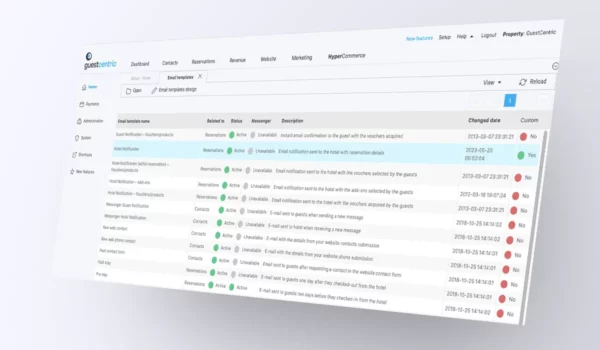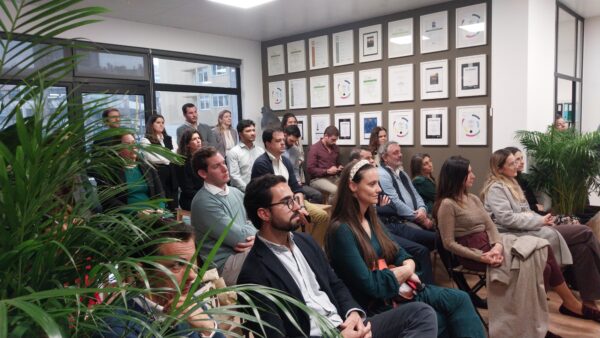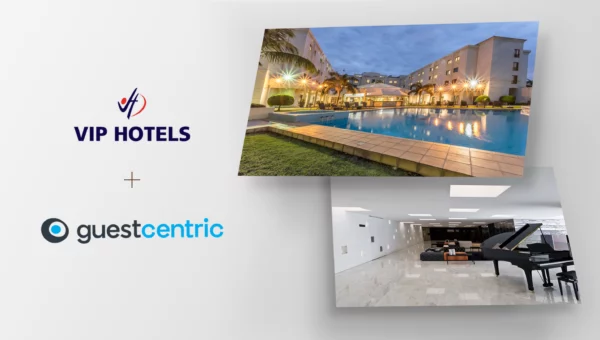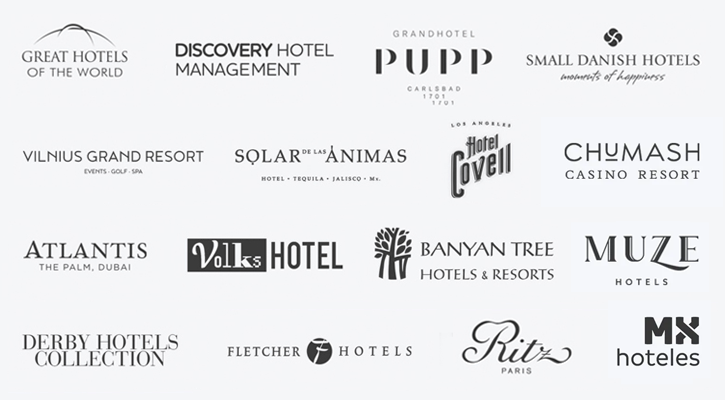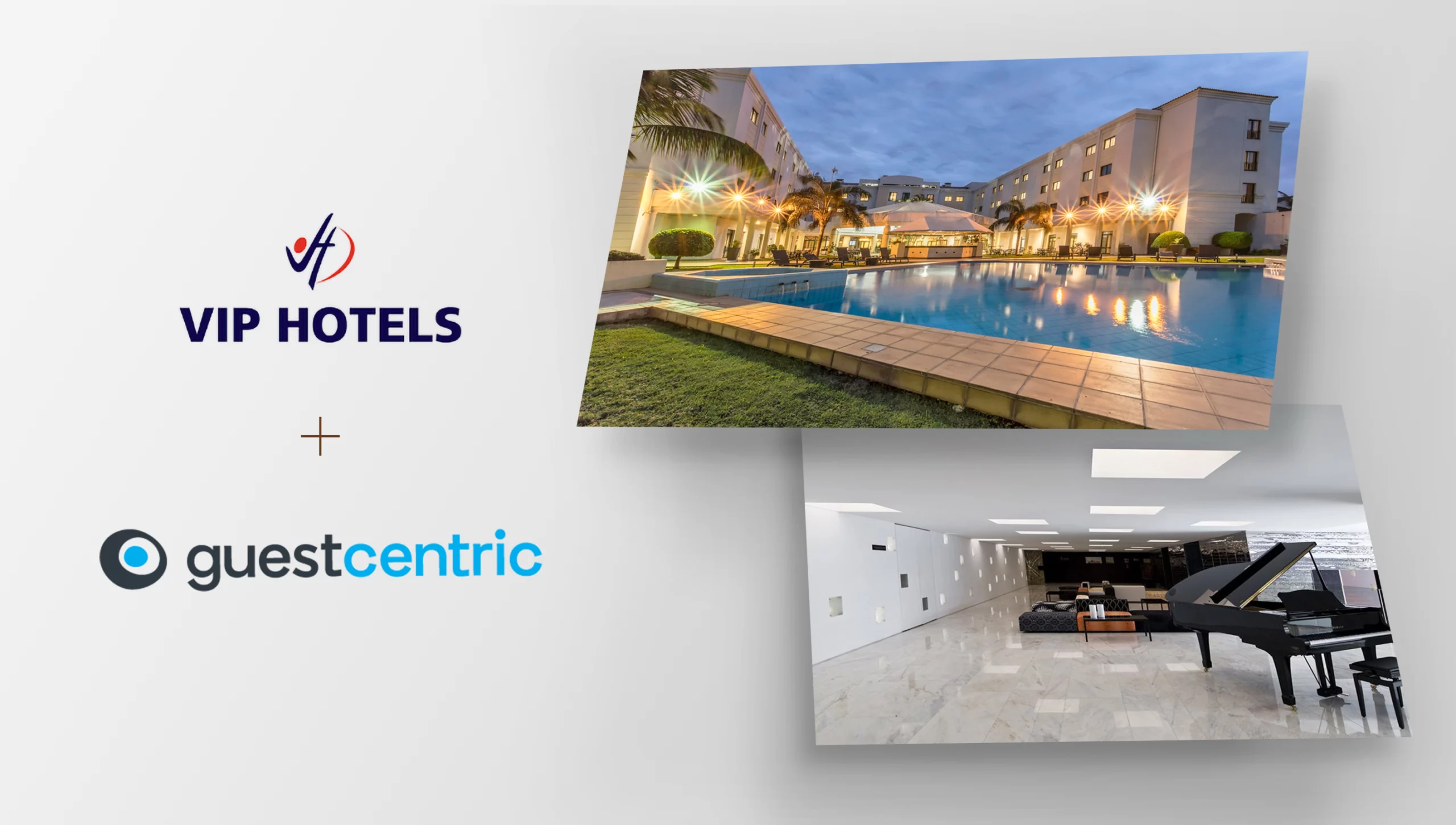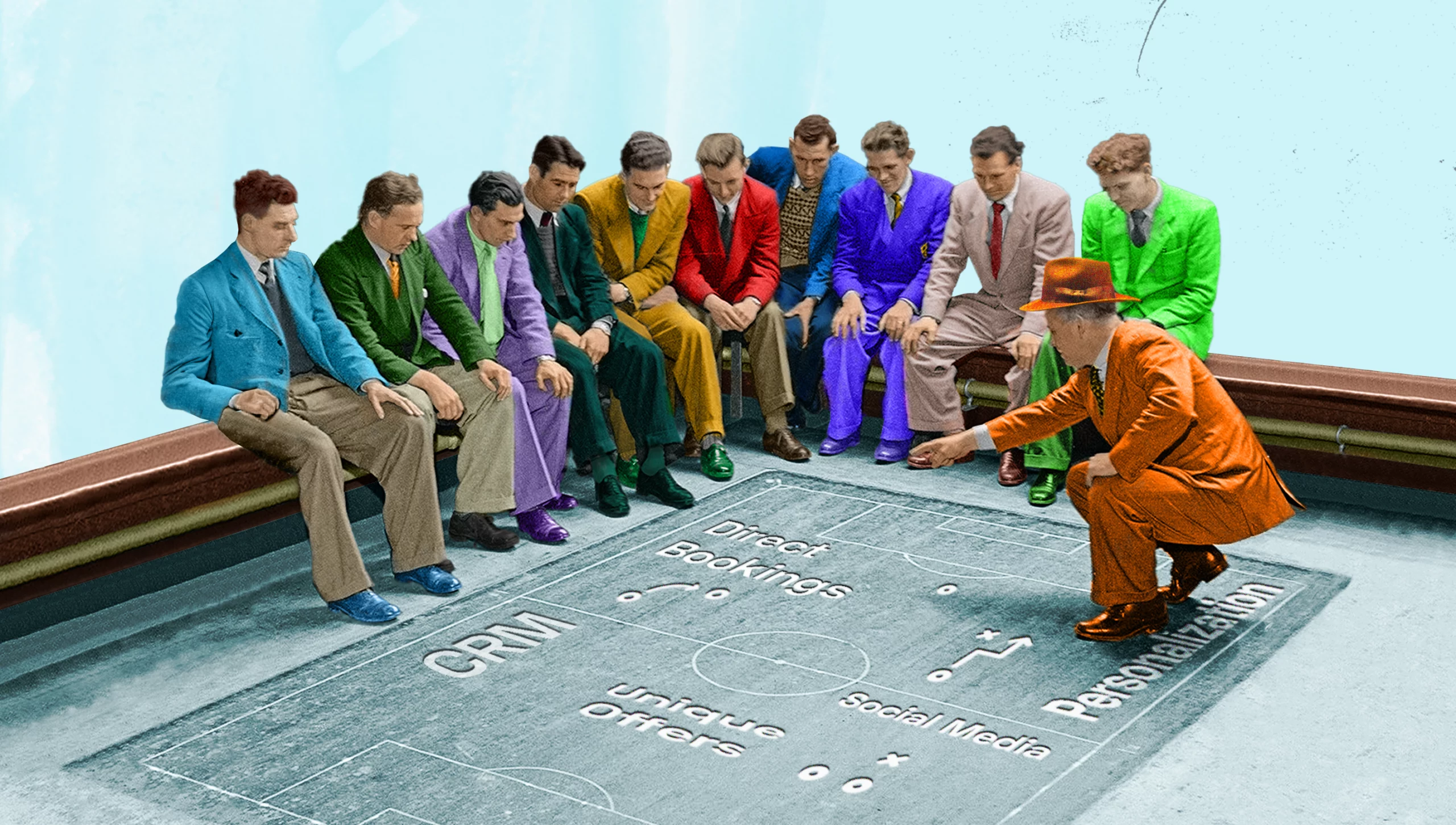Why HyperCommerce is the Future for Hotels
Reading Time: 5 minutesAs technology continues to evolve, and direct bookings continue to grow exponentially since 2020, it’s safe to say that the playing field has been levelled for hotels to compete and get more direct bookings. But, as the world of travel continues to change at a rapid pace, the big question is, what is next for independent hotels in the future?
In this article, we explore some of the top trends hotels can expect in 2030 and beyond, and highlight why hotels need to embrace the HyperCommerce philosophy in order to compete with the Goliaths of online distribution and take their business to the next level.
The Story of Independent Hotels – How far have we come and where are we going?
Back in 2006, big brands like Marriott and Hilton dominated direct bookings share because they had the staff, technology, budgets, marketing, and brand presence to help drive their business. Independent hotels, although smaller and with less resources, had the internet as an opportunity to level the playing field with bigger brands and OTAs. With this in mind, we set a vision to empower independent hotels with the same tools to compete with larger brands.
When travel came to a standstill in 2020, and over the two years of disruptions that followed, multitudes of guests worldwide opted to cut out the middle-man and engage directly with hotels they could trust to provide straightforward information and customer service. Thus, direct bookings grew significantly, and empowered hotels to reclaim control of their distribution.
In 2022, which turned out to be the best year ever for independent hotels – both in terms of demand and direct business – we analyzed performance within our portfolio and determined that the original vision to level the playing field had been achieved. Hoteliers now have access to a wide range of sophisticated tools from many providers that really help to capture the online market. Within our own portfolio, we see many hotels that have 50% market share in direct bookings.
Now that hoteliers have a level playing field to compete against the larger, traditional online distributors, it’s time to set our sights to 2030 and beyond. The first step of this process is to look at the top 5 trends we expect to impact hotels:
- Shorter Consumer Attention Span: The emergence of new generations, particularly Gen Z, brings a shorter attention span. Travellers seek quick access to concise information for informed decision-making. Social media platforms, video content, and conversational interfaces influence their trip planning, prompting a desire for instant booking options.
- Increased Demand for Hyper-Personalization: Guests now expect personalized experiences tailored to their preferences, whether it’s a specific location, room type, or unique activities. McKinsey & Company reports that 71% of consumers desire personalized communications, and 76% are frustrated when such offers are lacking. Hotels need to provide relevant information and streamline the booking process by eliminating irrelevant clutter.
- Technological Advancements and Adaptation: Technology permeates our lives, and hotels must adapt to the ongoing evolution. Artificial intelligence, automation, robotics, and augmented reality will continue to influence the industry.
- Payments Transformation: Current payment methods, such as credit cards, can be insufficient and frustrating for hotels. Solutions addressing these challenges are expected to emerge, simplifying the payment process and making it more akin to e-commerce. Flexibility in reservation cancellations may persist but with alternatives like insurance or deposits.
- Growing Importance of Sustainability and Purpose: Sustainability is no longer an abstract concept but a driving force behind concrete business models. Certification systems and consumer pressure will push hotels to adopt sustainable practices. Booking.com has already introduced sustainability measurements, and user reviews will play a pivotal role in driving the implementation of sustainability practices.
When you consider all the trends mentioned above, it’s clear to see that our industry is undergoing a revolution. To stay competitive, hotels need to embrace technology in order to adapt, provide the best possible experience to their guests, and grow their business.
What is HyperCommerce and how will it help Hotels Leverage these Trends and grow Direct Business?
When we looked at each of the above trends and put them together, we determined that hotels needed a new philosophy to be online. Thus, the HyperCommerce philosophy was born. HyperCommerce is really about creating a system that inspires ambitious hotels to deliver a remarkable experience to guests, wherever they can be reached in the online world.
Traditionally speaking, the hospitality industry (and specifically hotels) have been slower to embrace technology. This is because staff was more widely available whereas now that is changing. Hotels must focus on providing the best possible experience to their guests at all stages of the journey, from search, to check-out, and beyond. And the only way to achieve this, is through building the HyperCommerce philosophy into their offering.
Below are 3 ways that HyperCommerce will help Hotels leverage the trends listed above:
1. Reach Consumers Earlier in the Funnel
In order to break free from the limitations of traditional online distributors, such as OTAs and tour operators, hotels need to be in the conversation earlier in the funnel. This means that hotels need to reach consumers before they reach the mass distribution channels.
Whether it is on Tiktok, Instagram, or any other social media networks; or, whether it is on conversational interfaces such as ChatGPT that will likely change the guests’ online behavior, engaging with guests earlier in the process will be a critical factor for hotels to compete for business online.
We believe that HyperCommerce is going to be the platform to generate revenue growth for hotels. Hotels need to consider how they can grow their business, whether it’s through getting to the right guests at the right time and also providing tailored offers that are typically more difficult and complicated to book.
2. Deliver Tailored Hyper-Personalized Offers to Guests
HyperCommerce is also about providing a seamless guest experience, integrating everything hotels can do to create hyper-personalized offers, from the moment guests start searching to check-out and beyond. It is critical that this seamless experience starts early on in the dialogue between hotels and their guests.
HyperCommerce enables guests to more easily disassemble more typical offers and rebuild them in a way that is tailored to the guests’ specific needs. It’s important for hotels to consider how they can tailor their offers in a way that guests will even be willing to pay extra for the added value, or a discount to remove some of the extra add-ons.
This attribute-based selling needs to come into the process in a way that is easy and intuitive, which is what HyperCommerce is really all about. Hotels need to focus on reaching guests in new and exciting ways, and guide them to book in an easy and straightforward manner.
3. Simplify Hotel Operations
Beyond catering to the guests’ online experience, hotels also need to simplify their operations. One of the things that hotels always struggle with is the customer acquisition cycle. As technology evolves, HyperCommerce will deliver a much more comprehensive solution that can address all operational issues, whether it’s reservations, handling exceptions, or generating demand.
Our goal in building HyperCommerce was to provide an intelligent solution that is operationally simple and provides hoteliers actionable information easily and quickly. We analyzed consumer behavior on websites and booking patterns etc, then built this intelligence into the HyperCommerce system – creating alerts that hoteliers can easily see and respond to accordingly. A comprehensive HyperCommerce solution provides actionable information that helps hotels make better decisions to maximize their business.
Hotels will need to embrace more sophisticated yet simple-to-use tools to manage commercial activities in a way that maximizes business growth. HyperCommerce is an intelligent solution that can learn with usage and with data, showing guests how they can improve their performance or their pricing etc.
Conclusion
HyperCommerce is not an island. Hotels have many tools from many different providers that they will continue to use, and HyperCommerce has to fit well within the existing infrastructure. This means that HyperCommerce needs to integrate with legacy and other hotel systems. It also has to be innovative, yet reliable and operationally simple. Last but not least, in order for hotels to truly benefit from the power of HyperCommerce, there has to be a human element of support involved.
Technology is not something that lives in an abstract. It is used and managed by people, who may have questions, doubts, or forget information. Therefore, it’s really important to have a human face behind the technology to help hotels make the most of it for their business, whether it’s helping to resolve issues when they appear or recommend best practices to optimize performance.
In short, HyperCommerce is about changing the guest experience, providing very reliable and easy-to-use tools to the hotels. It is also about having an expert team that provides the support needed to operate these tools to their full potential.
Will your Hotel embrace HyperCommerce to leverage these trends in the future? Let us know in the comments.


